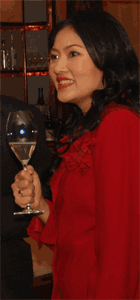| |
Originally envisioned as a self-training tool for leaders in law and politics, Law Magazine has
evolved into a forum for the sharing of knowledge, passion and vision. All of our readers are leaders, and all of the leaders are readers. We have a controlled circulation list, and articles from leading lights of society.
Some incredible people contributed to our first issue, including: Nobel Prize nominee, Sulak Sivaraksa, who described the moral basis of law in a Buddhist society; President of the Supreme Administrative Court, Ackaratorn Chularat, who examined the Thai understanding of the legal state; and Minister of Justice Chanchai Likitchita, who reflected on the sage advice of His Majesty the King. Democrat Party Leader Abhisit Vejjajiva asked how many words we wanted,
and then turned in an essay on priorities that was three words shy and five days early. A photo call to top journalists brought us several priceless collections from Jason Howe, with a picture that was nominated for the Pulitzer Prize.
Birthing a magazine is not the easiest thing to do, yet also not the hardest. Just when you think you have the right formula, things change, and the wildly fluctuating political situation last year presented special challenges. But several times, we experienced generosity of pocket and spirit. And key people kept coming back with improved versions of their piece of the project without being asked. Some of this flowed from personal excellence, and some, from the sense that Law Magazine would help to transform society.
We are distributing internationally from the first issue onwards, in order to provide key
influencers with the ultimate insider analysis of the law in Thailand. Additionally, we have
started to request articles from professionals in law and governance from around the world,
so that our readers can benefit from a well-rounded view. Underneath the power of position
are some bright minds and caring hearts. We aim to expose these treasures, and to encourage
active engagement of leaders holding diverse points of view. The fabric of society is complex:
we should weave it together.
Pamela Hongsakul |
|
 |
|













